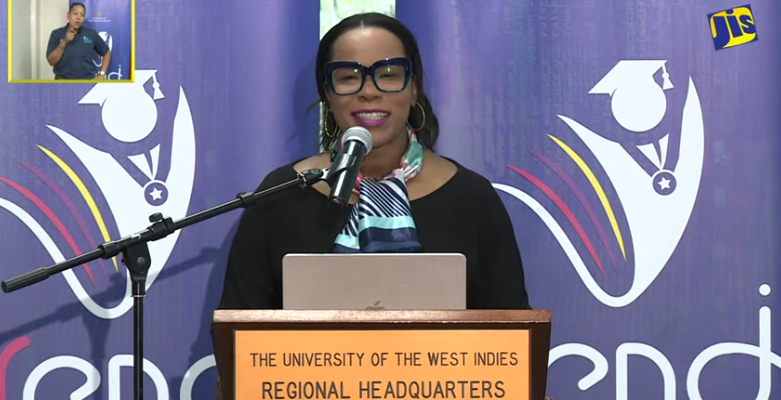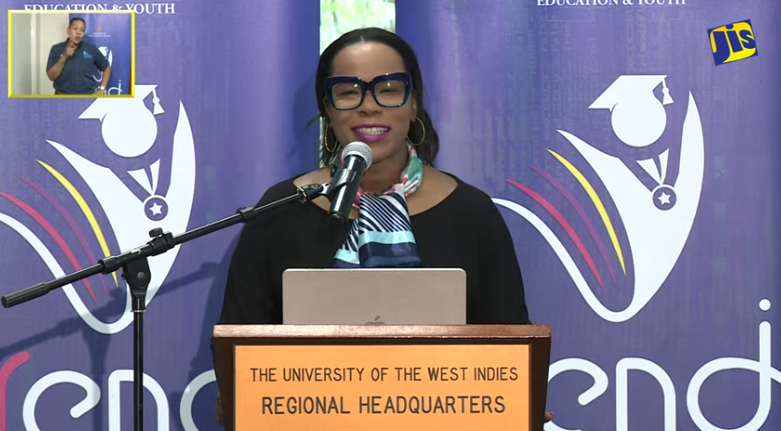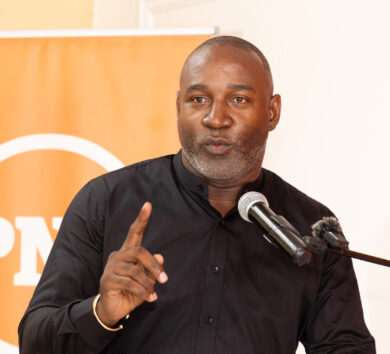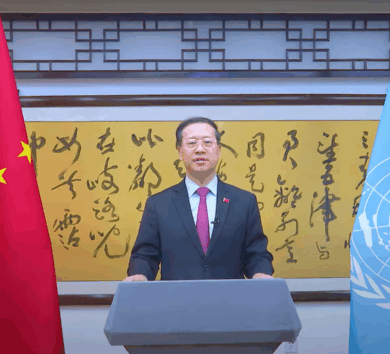

Permanent Secretary in the Ministry of Education, Skills, Youth and Information Kasan Troupe outlined that the ministry has broken down the recommendations of the Patterson Report into short-term, medium-term and long-term goals to transform the education sector.
The Orlando Patterson report, formally titled The Reform of Education in Jamaica, is a comprehensive blueprint for overhauling Jamaica’s education system.
Troupe stated that at present, the ministry is still within the short-term phase. “We have started the final year of the short-term phase, which is year 2025/26. We have done two years, and today represents the fourth quarter of the second year of this for the nation. We come to the nation every quarter to make sure that you are kept abreast and informed of what is happening,” she said.
The permanent secretary also underscored that too often, it is believed that the ministry is not doing anything with the recommendations. “So we have begun work on 130 recommendations thus far, and we have achieved 15 of them overall, and so we continue to do work on those. Our estimation based on the work to be done is that we are at 23 per cent in our progress report of 100 per cent. Of course, the report and the work conclude in 2030, and so we will be on our trajectory to get there, but at this point, I’m updating the nation that we have achieved 23 per cent of the work to date.
As we continue to look at the recommendations, the last quarter also included the review of the third year in the short term, and we will be taking on some additional recommendations in this financial year. 50 new recommendations will be added into this new financial year. We have reviewed those already, and that will take us to 171 of the recommendations being actively pursued, and that will give us about 47 per cent of the overall targets being addressed,” Troupe continued.
The permanent secretary also highlighted that one of the recommendations of the Patterson report speaks to the strategic review of the Ministry of Education to make sure that it’s a fit-for-purpose ministry, including their agencies, entities and divisions. “So, that work has been outsourced to the Mona School of Business, and they continue to do the milestone achievements in that work plan. So, we continue to do the work with Mona School of Business. They have done the desk review already, and they have done a series of interviews across the ministry and across other ministries to look at other structures, governance structures and how they work and what is the best fit and they have submitted the second milestone to propose a new structure for the ministry. That is going to be reviewed by our minister and our technical team to provide feedback to the Mona School of Business so they can continue with the consultancy.”
Troupe also expressed that the ministry team aims to conclude this process in November of this year. “So, they will continue to do work on meeting milestones, and then we will get to the end result, and we’ll present to you what is submitted by Mona School of Business. Important to note, their consultancy includes not just telling us what to do, but how we are going to have this fit-for-purpose ministry.”
This will be reviewed by the minister, submitted to cabinet and inform the way forward with respect to implementation.
The permanent secretary also outlined that another recommendation from the report was for the ministry to have an Education Management Information System (EMIS). “That will help us to have real-time access to data so we can make informed decisions, we can put in responsive services and we can provide our reports to local and international stakeholders.
“We are very, very active in this; 32 per cent of the work has been done. We have the platform rolled out already in 263 schools. Yes, that includes 18 schools from the inter-ministerial group that we’re working with the Ministry of National Security (MNS) with and the 245 intervention schools that we’re working on,” Troupe added.
The permanent secretary further exclaimed that the ministry has provided trained personnel in these schools and has developed an app so the teachers who are working with the platform now can also use it on their handheld devices and can work offline and online. “We have also developed the EMIS resource website as part of the adoption process. We have to provide support services for our teachers and administrators. So, we have put a website out there with information so persons can always go back for the videos, the how-to videos, to know what to do. We have also configured the behaviour module.
So, we are working on launching three active modules now. We are going to be integrating all pieces of ICT in the ministry in the EMIS, but we have to do it gradually. But for the school services, we are working on the attendance module, the behaviour module, and the assessment module. And so, all of those three modules should be ready for September, but right now, we are building out the behaviour module, and the attendance module is fully ready,” Troupe added.







Comments